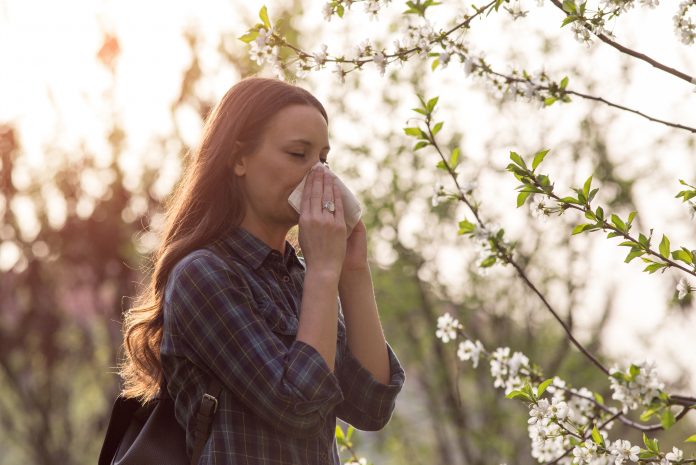
The bulk of the medical community considers that there are no remedies for allergic rhinitis, a condition characterized by sneezing, runny nose, watery eyes and commonly called”hay fever”.
Cures for Allergic Rhinitis
Authorities on allergic rhinitis say that the sole treatment involves avoiding allergens, taking antihistamines and potentially allergy “shots” if symptoms are severe or hard to live with.
However, some healthcare professionals and former victims of allergic rhinitis say that there are potential cures for allergic rhinitis, they have been cured and are free of symptoms. But take these comments for what they are: anecdotal, not scientific, evidence.
Allergic rhinitis may cause sinusitis, which is a chronic inflammation of the sinuses. Frequent sinus infections may occur in those who suffer from allergic rhinitis. In some instances, surgery is essential. So, searching for remedies for allergic rhinitis is essential for people who would like to prevent complications or chronic ailments.
While some might think of “hay fever” as only moderately severe, the indicators can negatively affect the quality of a individual’s life as well as the common treatments for allergic rhinitis don’t always enhance that quality.
Although antihistamines aren’t cures for allergic rhinitis, their use for treating the problem is widespread. Antihistamines aren’t cures for allergic rhinitis since they don’t block the allergic reaction. They may alleviate some of the symptoms of allergic rhinitis temporarily. However, there are possible side effects of synthetic antihistamines, including: dry mouth, throat, eyes and drowsiness.
Natural antihistamines don’t cause these side effects.
In order to locate natural antihistamines (which are not cures for allergic rhinitis, but may relieve symptoms), we have to look to the traditional use of plants and botanicals. More and more scientists, researchers and medical doctors are searching for the natural world for remedies and treatments for allergic rhinitis and all ailments.
The medical world is only just starting to understand the role that inflammation plays in the huge majority of diseases and ailments; allergic rhinitis is no exception. An allergy is an inflammatory reaction of the immune system to substances that wouldn’t induce activation of the immune system in persons that are not allergic.
Synthetic anti-inflammatory drugs cause a vast selection of unwanted side effects and generally block just one inflammatory molecule. Natural anti-inflammatory substances target a much wider range of inflammatory compounds, resulting in greater security and effectiveness. Were it feasible to find natural botanical products that had both anti inflammatory and antihistamine properties, then you might discover natural remedies for allergic rhinitis.
In 2002, a group of scientists compared the antihistamine effects of the mangosteen to a medication used as a treatment for allergic rhinitis and discovered that mangosteen extracts were potent natural antihistamines and were equally as effective as the prescription medication. So, mangosteen could be among the probable remedies for allergic rhinitis, since it blocks histamine production, but what about inflammation?
Another group of scientists discovered that a part of the hull of the mangosteen was a COX-2 inhibitor. They weren’t searching for alternative treatments or remedies for allergic rhinitis, but only studying the elements of this fruit which was used in conventional Asian medicine.
COX-2 inhibitors are strong anti-inflammatories, but synthetic types of COX-2 inhibitors have caused many side effects. They relieve pain, but hamper a chemical that helps prevent dangerous blood clots from forming in the blood vessels.
As previously mentioned, scientists think that natural anti-inflammatories or COX-2 inhibitors are safer to the human body than synthetic anti-inflammatories. So, that the mangosteen is a natural antihistamine and a natural anti inflammatory.
Now you might be wondering if anybody has used it for treating allergic rhinitis and if it may be among the natural remedies for allergic rhinitis. What follows is a brief synopsis of one testimonial concerning allergic rhinitis and mangosteen usage.
A physician reports that he, himself, suffered from allergic rhinitis for several years. His symptoms were pounding headaches, nasal congestion and sneezing. Over the years, the allergic rhinitis led to recurrent sinus infections requiring treatment with antibiotics.
A selection of synthetic antihistamines provided only”marginal relief”. After using one ounce of mangosteen juice twice a day for 2 days that his allergic symptoms were gone and he had been able to quit using his prescription antihistamines.
Being somewhat skeptical in nature, he decided to quit using the mangosteen juice for a cure for his allergic rhinitis for a single day. The following day all his symptoms returned and were once more relieved by mangosteen juice.
Conclusion
In conclusion, it can be that there are a range of natural remedies for allergic rhinitis just waiting to be found, but for those people who currently suffer from allergic rhinitis, mangosteen juice might provide a potential solution.





